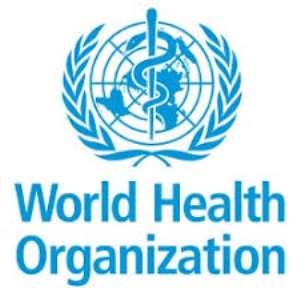
The emission of toxic substances into the air, mainly produced by human activities, continues to threaten human lives.
To this end, the World Health Organization (WHO) is raising a serious alarm since air pollution has resulted in a lot diseases including lung cancer.
Added to this, are cardiovascular diseases and respiratory infections.
It said exposure to air pollution was causing seven million deaths, every year, and an estimated US$5.11 trillion in welfare losses, globally.
Dr. Maria Neira, the WHO's Director of Public Health, Environment and Social Determinants of Health, announced this at the launch of s Special Report by the UN's specialized agency, at the ongoing 24th Conference of the Parties to the United Nations Framework Convention on Climate Change (COP24) in the Polish city of Katowice.
She said the true cost of climate change was being felt in the hospitals and in the lungs of the people of the world from the continuous greenhouse gas emissions.
'In the 15 countries that emit the most greenhouse emissions, the health impacts of air pollution are estimated to cost more than four per cent of their Gross Domestic Products (GDP).'
Actions to meet the Paris Climate Change Agreement would cost around one per cent of global GDP.
She said the health burden of polluting energy sources was now so high, and made a strong case for cleaner and more sustainable energy supply, transport and food systems.
Dr Neira added that when 'health is taken into account, climate change mitigation, is an opportunity, not a cost'.
She underlined the need for the world to switch to low-carbon energy sources to improve air quality and to provide additional opportunities for immediate health benefits.
She identified the burning of combustible fossil fuel as the main driver of climate change.
Dr Diarmid Cambell-Lendrum, WHO's Coordinator, Climate Change and Health, said it was working in partnership with the global scientific and environmental community to ensure that the most vulnerable communities were protected from the negative effects of climate change.
It was important to develop earlier warning system for the climate infectious diseases and to provide resilient health care facilities.
He said looking at the economic health benefits of mitigating climate change was also critical.
He noted that when the world quickened actions in the transition to cleaner energy and kept 'ourselves on track by the year 2050, we will be saving about a million lives a year, for reducing emissions alone'.
Professor Kristie Ebi, Department of Global Health and Environmental and Occupational Health Sciences, University of Washington, said the global public health community was getting impatient with the level of air pollution being caused by greenhouse emissions, and called for speeding up of actions towards addressing and mitigating the climate change.
'The pursuit is not just saving the planet, and the glaciers, and the future; it's about the protection of the health of the people.'
The WHO's Report, among others, recommends mobilisation of city Mayors and other sub-national leaders, as champions of inter-sectoral action to cut carbon emissions, increase resilience, and promote health; inclusion of the commitments to safeguard health from the United Nations Framework Convention on Climate Change (UNFCCC) and the Paris Agreement, rulebook for the Paris Agreement, and systematically including health in the Nationally Determined Contributions (NDCs), National Adaptation Plans and National Communications to the UNFCCC.
Added to these are the removal of existing barriers to investment in health adaptation to climate change, especially for climate-resilient health systems and 'climate-smart' health care facilities and inclusion of the health implications of mitigation and adaptation measures in the design of economic and fiscal policies - carbon pricing and the reform of fossil fuel subsidies.
---GNA




 Saglemi Housing Project will not be left to rot – Kojo Oppong Nkrumah
Saglemi Housing Project will not be left to rot – Kojo Oppong Nkrumah
 Transport fares hike: GPRTU issue two-day ultimatum
Transport fares hike: GPRTU issue two-day ultimatum
 ARC endorses Alan as presidential candidate – Buaben Asamoa
ARC endorses Alan as presidential candidate – Buaben Asamoa
 Akufo-Addo appoints Kwasi Agyei as new Controller and Accountant-General
Akufo-Addo appoints Kwasi Agyei as new Controller and Accountant-General
 PNC dismiss reports of mass resignations
PNC dismiss reports of mass resignations
 PAC advocates for revenue collectors to be engaged on commission basis, not full...
PAC advocates for revenue collectors to be engaged on commission basis, not full...
 Genser Energy commissions 110km of natural gas pipeline at Anwomaso
Genser Energy commissions 110km of natural gas pipeline at Anwomaso
 Naa Torshie calls for tolerance, peace ahead of 2024 election
Naa Torshie calls for tolerance, peace ahead of 2024 election
 Asantehene commends Matthew Opoku Prempeh for conceiving GENSER Kumasi Pipeline ...
Asantehene commends Matthew Opoku Prempeh for conceiving GENSER Kumasi Pipeline ...
 Let’s do away with ‘slash and burn politics’ in Ghana — Dr Adutwum
Let’s do away with ‘slash and burn politics’ in Ghana — Dr Adutwum
